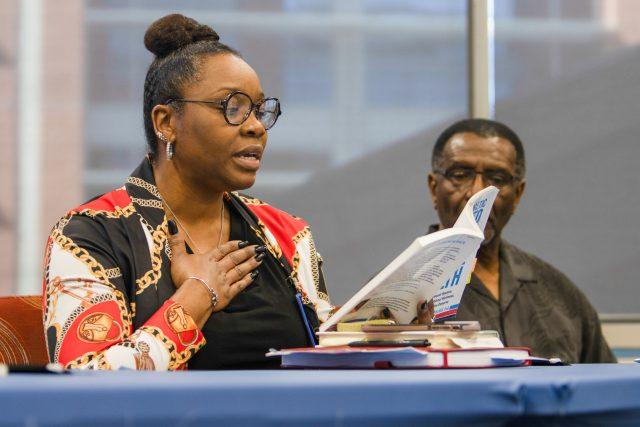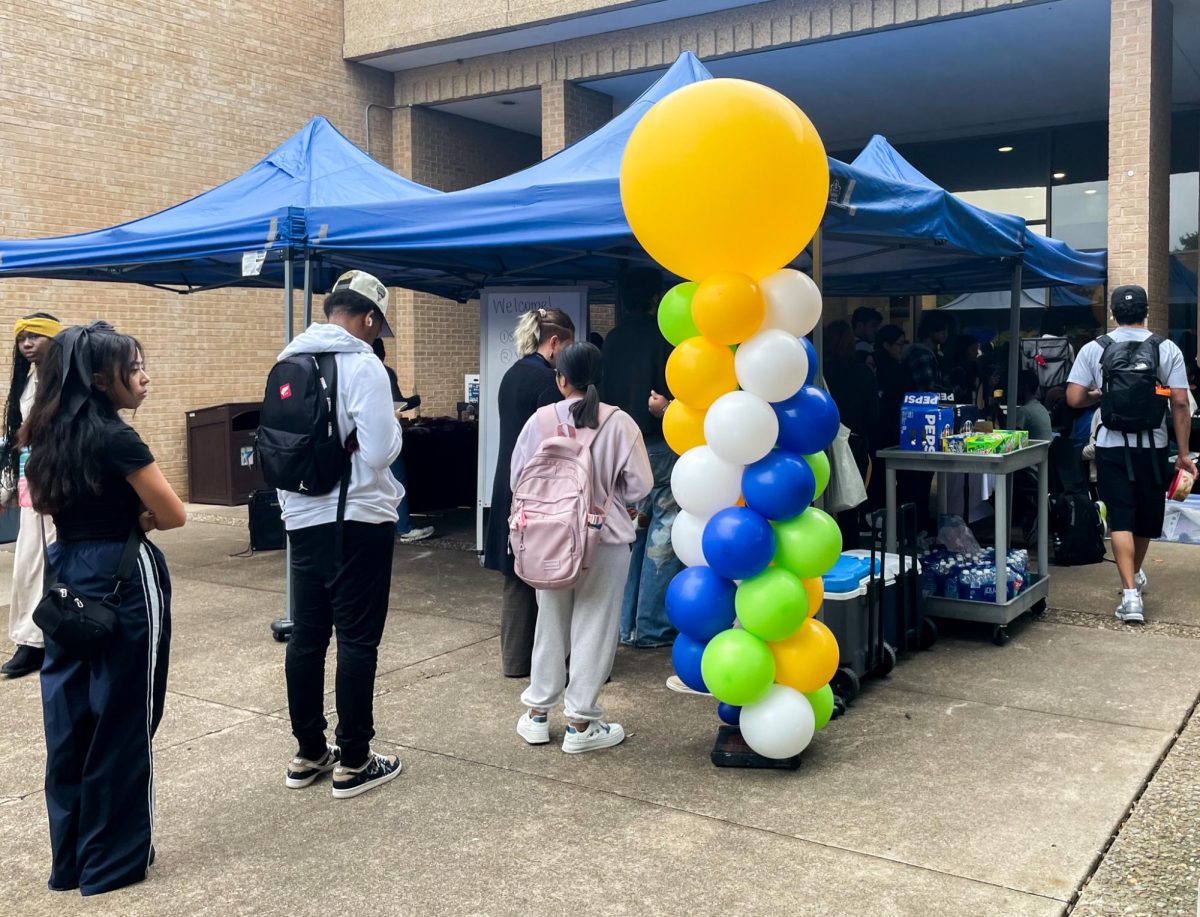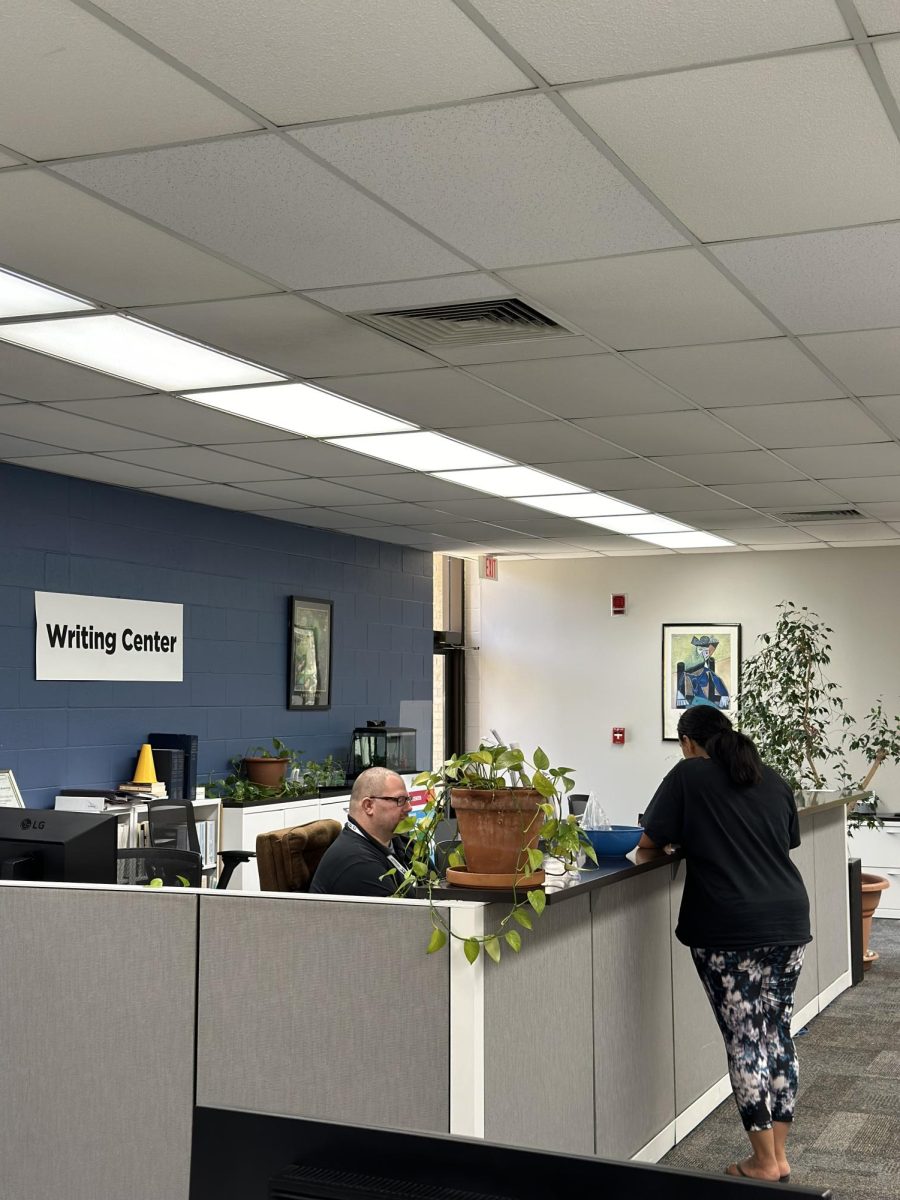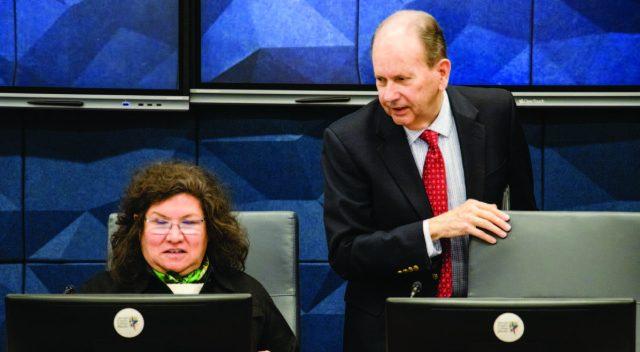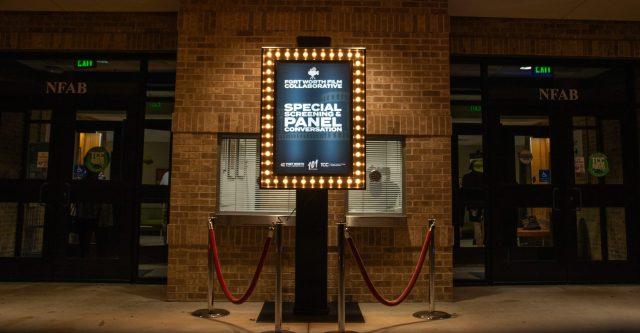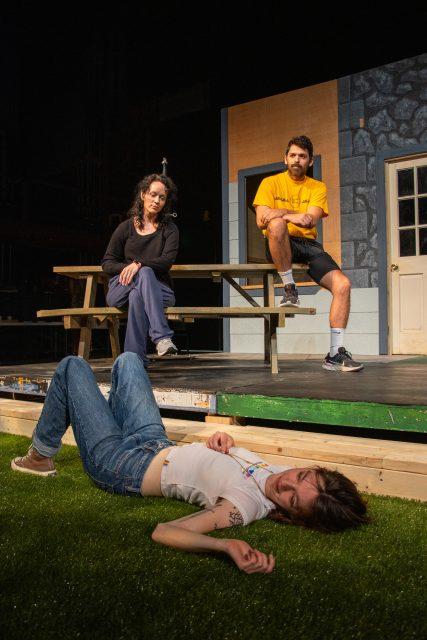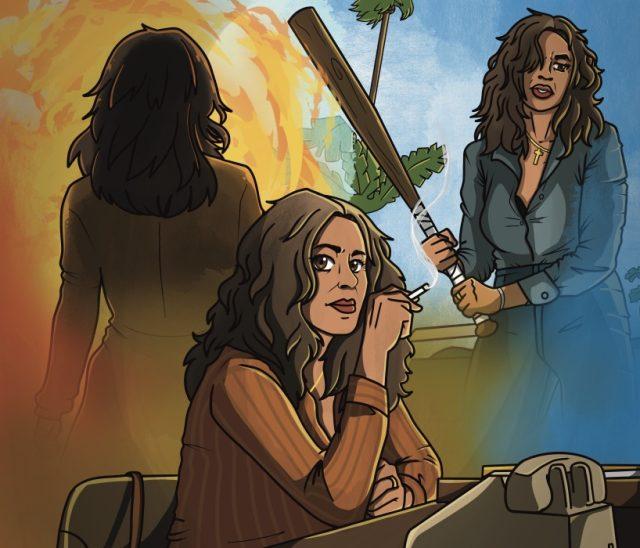OLLA MOKHTAR
campus editor
olla.mokhtar@my.tccd.edu
For over 30 years, the National African American Read-In’s effort to make literacy a part of Black History Month has been worldwide. The Black Caucus of the National Council of Teachers of English made this a tradition, and on Feb. 21 it made its way to the TR Campus.
Mandrell Bufford, TR Librarian and organizer of the event, hosted a panel for himself and three other members from the TR community. They each read an excerpt of a book by an African American author, including Veterans Counselor Carla D. Cauley.
Cauley said the reason she made the change from working with the government to becoming a counselor was because she saw a need for people to be heard, especially in the Black community.
When she was asked to participate in the AARI from a clinician’s perspective, she said the reason she chose Rheeda L. Walker’s “The Unapologetic Guide to Black Mental Health” was because Walker is a licensed clinical psychologist that has done research specifically on African Americans.
As an African American mother of two Cauley related to the book, especially when she read the excerpt on Trayvon Martin, the 17-year-old child that was fatally shot by a neighborhood watchman on the night of Feb. 26, 2012.
She said she wanted people to learn, from a licensed clinician, how to deal with emotions tied to tragic events such as Martin’s and how to ask if people are okay.
“I hope that in sharing what I did, and then just listening to the other panelists, that they know that sometimes it’s okay not to be okay,” she said.
Just like many people have annual physical checkups, she believed that people should have mental health checkups without regarding it as taboo. She even recommended some clients who aren’t Black to read it to understand navigating mental health as a Black person.
“It’s really not as bad as people make it out to be because TV can just make it worse, or Instagram or social media, can make things seem a lot worse than what they really are,” she said.
Hoping to shed some light on mental health and the use of journaling, she said that using tools, such as journaling, is something one can do to show ownership and acknowledge some things they’re going through. She said she hopes to spark the idea of going to counseling should one need it.
The other panelists included TR student Titus King who read an excerpt from Howard Thurman’s Jesus and the Disinherited. Steven LeMons, Learning Commons associate manager, read from his book The Incredible Journey of a Life.
Initially when Bufford read Langston Hughes’ short story “Thank You, Ma’am” he said he thought it was funny. In the short story, the character Mrs. Jones gets robbed by a young boy. But instead of turning him to the police, she forces the young boy by putting him in a headlock to go home with her to clean up.
She even offers him food and some cocoa. Over the years and over multiple readings he gets more from it every time, he said.
Seeing how she communicated with him and connected with him made Bufford see how the young boy was just a scared child, not a gangster and not aggressive. The boy simply acted out of desperation, and with that Bufford said that taught him a lot about people.
“One of the perspectives I get is just because a person does a bad thing doesn’t mean that they’re a bad person,” he said. “We still have the ability to show them grace and understand that we’ve all made mistakes.”
Though AARI can happen anytime, Bufford said, in the sense that people should be reading authors who happen to be African American all the time.
“I think it’s a great event,” he said. “The topics matter not, but the way that it’s presented to their lens, I think is valuable.”
TR student Michelle Johnson said that Hughes’ story reminded her of the time she was assigned to read it in school.
“I brought tears to my eyes when he first said the title of the story,” Johnson said.
To her, Langston wrote like he knew the reader.
“Langston Hughes, he writes in such a way that I feel involved in the story,” she said. “His reading doesn’t read like you read a structural man or an instructional book, like he’s just holding a conversation with you.”
Johnson said it resonated with her because it reminded her of how the Black community took care of its children. It didn’t matter if people weren’t related to one another, they’re going to call you out if they see someone doing something they’re not supposed to do. Or even ask about how you were doing or needed help with something, she said.
“They make you feel like you even if you never see them all the time you’re covered,” she said. “Relationally speaking you’re covered socially. That’s what stood out to me.”
Being able to commemorate Black history and find ways to engage with the surrounding communities about the Black community is important, she said.
“I’m hoping that I’ll be able to use what I’ve heard from Dr. LeMons and Mandrell how to help somebody else to be able to see value in their voice,” she said. “That everyone has a voice, and it’s important.”
At first, Bufford said he only read for assignments for school rather than for pleasure. When he got older, he saw the value in it and said like him, he believed people could grow into it.
“Read whatever you find interesting,” he said. “Just appreciate reading more, and it really, really can be life changing if you can continue trying just stick with it.”

























